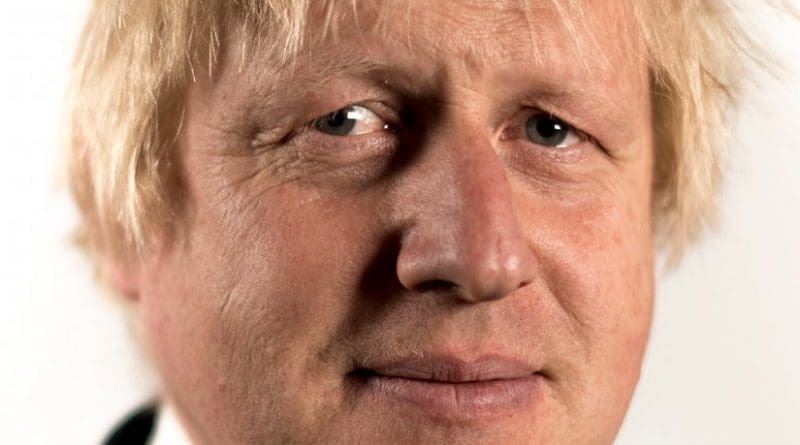Boris Johnson: UK Would Be ‘Crazy To Let Romanians Go’
By Ana Maria Touma
Despite being one of the UK’s leading proponents of Brexit, UK Foreign Secretary Boris Johnson told media during a short visit to Bucharest on Monday that Romanians are valued members of society.
Romanians are valued members of British society and the United Kingdom would be “crazy to let them go back to Romania,” the head of Britain’s Foreign and Commonwealth Office, Boris Johnson, said in an interview with Romania’s top public news agency on Monday.
“We love them – they’re making massive contributions to the UK economy, to British culture,” Johnson said during the short and somewhat unconventional trip to the Romanian capital. “I was mayor of London. When you walk around London you see lots of Romanian shops, a lot of Romanian people doing all sorts of things, every job in society … we want to ensure that they feel secure, and that their rights are protected,” he added.
Johnson arrived in Bucharest late on Monday and met with his Romanian counterpart, Teodor Melescanu. However, the two top diplomats did not give a joint statement, as protocol would usually dictate. By Tuesday midday, the Romanian Ministry of Foreign Affairs still had not issued any official press release.
The only publicly visible trace of the meeting was a Twitter post by Johnson showing a photo of himself with Melescanu at the residence of the British ambassador on Monday.
The head of Foreign Office is taking a two-day visit to the Czech Republic, Romania and Slovakia. The Foreign Office said on Monday that Britain wants to continue cooperating closely with EU members on matters such as “security and defence policy, countering Russian influence” and trade.
However, for Bucharest, the anticipated post-Brexit situation has fomented concern about the estimated 400,000 Romanian citizens living and working in Britain. The country is keeping them a priority and has been one of the strongest advocates of maintaining the free circulation of labour in exchange for Britain’s access to the European single market after Brexit.
Johnson pointed out that Britain was not planning to close its borders to talented immigrants, but the UK reserves its right to control its borders. Johnson also said that he was in Bucharest to outline British Prime Minister Theresa May’s plans for after Brexit.
Earlier on Monday in Prague, he reiterated May’s promise that the UK would continue to honour all existing European Union rules during the two-year transition period after Brexit in 2019. At the weekend, The Daily Telegraph said Johnson had demanded a series of assurances and wanted Britain to be able to sign trade deals during the transition period.
Johnson’s trip is taking place as EU Brexit negotiator Michel Barnier and his team meet their British counterparts for four days of talks until Thursday.
Johnson has been a staunch supporter of Brexit and in 2013 engaged in some hardline anti-immigration discourse, just before Romanians and Bulgarians were granted free access to the UK labour market.
At the time he said that it was important to “look at the impact of the accession countries of Romania and Bulgaria,” saying he was concerned about them.
“We’ll support immigration by talented people but I am concerned immigration from Bulgaria and Romania, unless properly handled, will lead to an increase in rough sleeping of the kind seen from previous accession countries,” he said in 2013.

